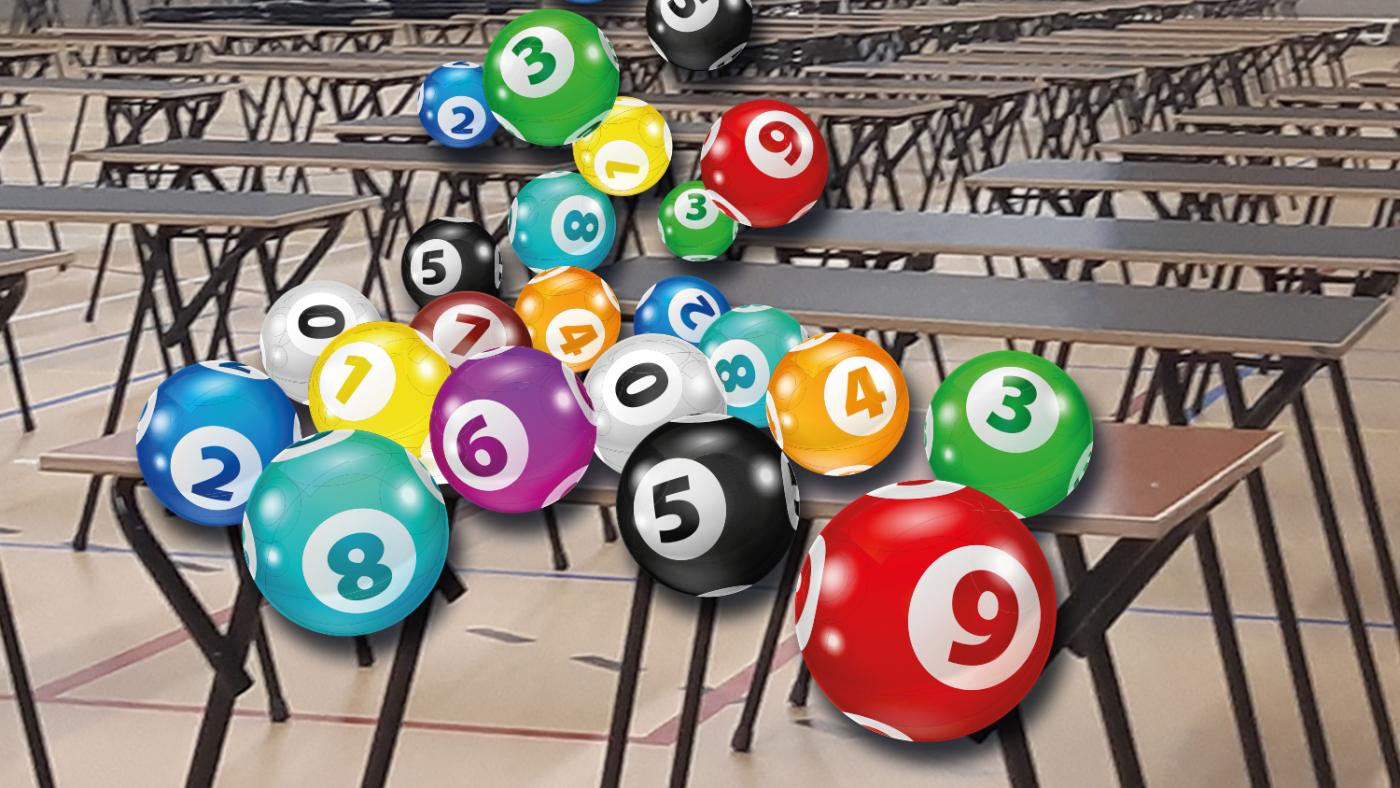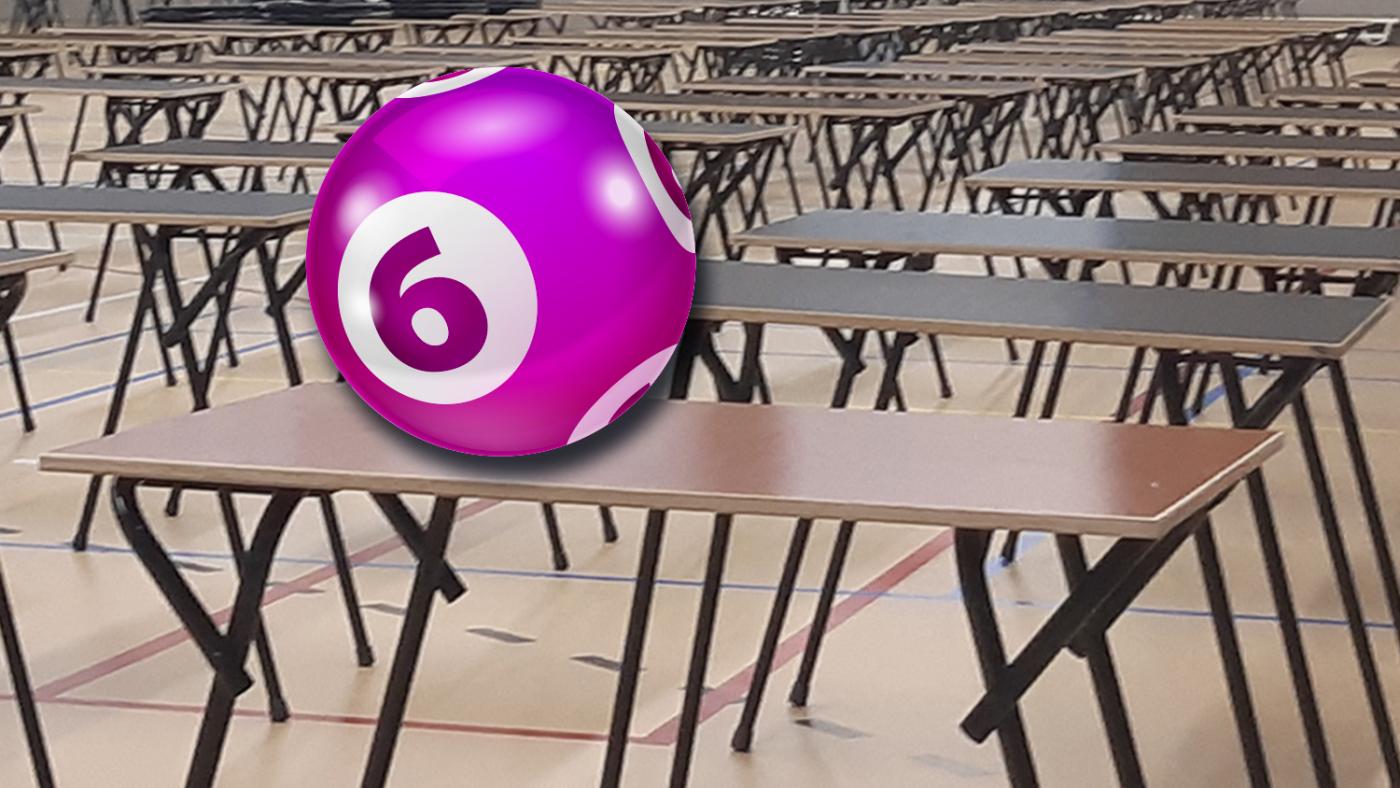New selection method deemed "fairer"
Psychology chooses combination of decentralised selection and draw

A limit of 600 first-year students has been in place in UU's Psychology programme since 2019 (a practice best known as numerus fixus). In order to be accepted, applicants must attend a lecture and a work group, complete an assignment, read two chapters of a book, take an exam, and write an essay. The last two are graded. These results, combined with their high school grades, determined their place on the list.
But things will be different in the academic year 2024-2025. The requirements mentioned above will be maintained but the grades obtained in the essay and exam will no longer determine the student’s position on the list. Candidates who score a 7 or higher are assured a spot. That's thirty percent of all candidates (excluding dropouts). Those who get between a 6 and a 7 will undergo a draw. This means that candidates with grades lower than 6 hardly have a chance to enrol in the programme.
Dropouts
Every year, about 2,000 students sign up for the Psychology programme and its intense selection process. A considerable part of them drop out halfway through. According to Maarten van der Smagt, Education Director of the Psychology programme and chair of the selection committee, more than 700 candidates dropped out of the 2,000 who applied. That's because going through the entire selection process requires dedication, he says. That's a way to select the most motivated students.
Small differences
The current selection method, in which the 600 candidates with the best scores were given a spot and the others were put on a waiting list, was a thorn in the side of the education director.
“The difference between the person who gets place number 600 and the one who gets 601 is 0.002 points." It doesn't say anything about who is going to be more successful or a better match for the programme. "Around that point, you simply don't have the precision you need to make distinctions. It is better for us to admit this. With such small differences, I think draws are fairer."
Van der Smagt actually had been wanting to introduce this change for a long time but the law obliged programmes with a numerus fixus to carry out a decentralised selection procedure. A draw was said to be unfair because it doesn't take motivation and talent into account.
But the current way of doing this was ever more criticised too. Critics argued that it contributes to increasing inequality when it comes to opportunities as well as reducing diversity in the study programme. That's because children of highly educated and/or wealthier parents would have a better chance at getting a spot: parents can help them write a good motivation letter or pay for extracurricular courses to increase their chances of passing the selection process.
Effectiveness
Van der Smagt and his colleagues have been researching the effectiveness of decentralised selection for years. In 2021, they published an article on ScienceGuide pleading for a combination of decentralised selection and a draw, as they believe this would be fairer.
Last year, when the Dutch Parliament debated about the best way to select students, for a moment it seemed as though educational institutions would be forced to choose between decentralised selection or a draw. Van der Smagt then sent his analysis to several political parties to lobby for his ideas. According to him, effectively so.
Earlier this year, the House of Representatives voted for draws to come back, but a combination of draws and decentralised selection also became an option. The idea was to start by selecting the most suitable candidates and then following with a draw. Due to this legislative amendment, the Psychology programme is now able to execute the idea.
Selecting out
Although a draw will equalise the chances of a certain group of applicants, it is doubtful whether this will immediately make the programme more diverse. It is quite hard for Psychology programmes to find students with different cultural or religious backgrounds. According to Van der Smagt, the fact that there is only one type of student has not so much to do with the selection method. In general, even at other universities, Psychology is usually popular among women.
Moreover, he argues that the programme's selection process does not mark out the inequality of opportunity so strongly, because the emphasis is not on "selecting the best candidates to get in, but rather "selecting out" the students for whom the programme isn’t a good match. The vast majority of applicants do get a place because many of those accepted do not finalise their enrolment anyway, opting for another programme or a gap year instead. "The first year with decentralised selection, everyone got a place. It varies from year to year. Two years ago, numbers 1,050 and 1,400 still got in. This academic year, it was only up to about 880."

A mere six
But a consideration still had to be made: which students should go through a draw? Those who obtain a 6 or lower in the selection process and high school aren't likely to get a spot anyway. Van der Smagt doubted whether the draw should start at 5.5, the official passing grade.
“But the difference between a 5.51 and a 6.99. is too big to lump everything together. That would also be unfair. Besides, these are average grades. The end grade of secondary school should be an average of 6. Scoring lower than 6 in the decentralised selection means that the essay and the exam are probably poor."
Performances
But is it actually possible to predict in advance which high school students will do well in the programme? Van der Smagt and his colleagues examined this for the first time in 2013. At the time, Psychology put numerus fixus to a temporary halt but it did select students with the same methods used in decentralised selection. Candidates were also required to write an essay and take an exam but they were accepted regardless of their results at school.
After the first academic year, the researchers knew which students obtained the minimum number of credits required to move on to the second year (BSA) and which ones didn’t, so they compared this data to the results of the selection process. By doing so, they could determine whether the selection selects and rejects the right students.
“The study showed that decentralised selection can predict students' success just as well as secondary school grades. It’s just that high school grades don’t predict things perfectly either,” says Van der Smagt. "And the disadvantage of doing a complete draw is that motivation is not taken into account.” He goes on: “There will always be some uncertainty about how well a student will do in the programme. Therefore, in the case of hard-to-define candidates, a combination of average grades and a draw is fairer than just selecting or just having a draw."
UU has a total of five numerus fixus programmes. In addition to Psychology, Biomedical Sciences, Veterinary Medicine, Pharmacy and Medicine also have a limited number of places available each year. The other programmes "need more time to think about what form of selection they want to employ," says Ditte Dulmen Krumpelman, Policy Adviser for the numerus fixus programmes. "Any changes they make will not be implemented before 2025-2026 at the earliest." In the next few months, these programmes will examine which forms of selection they prefer but they may end up making different choices.